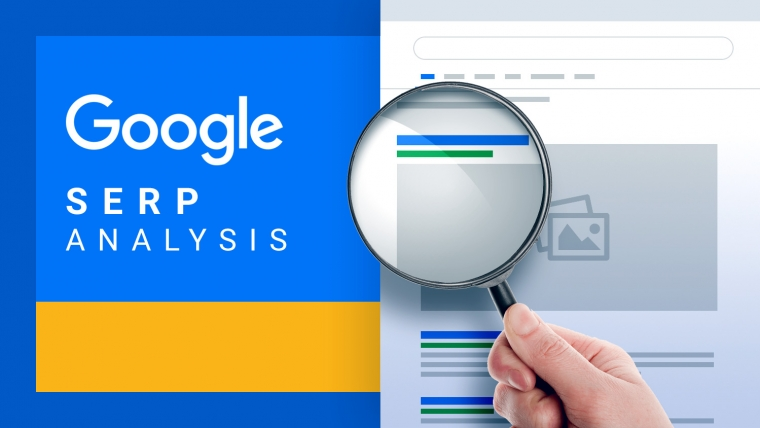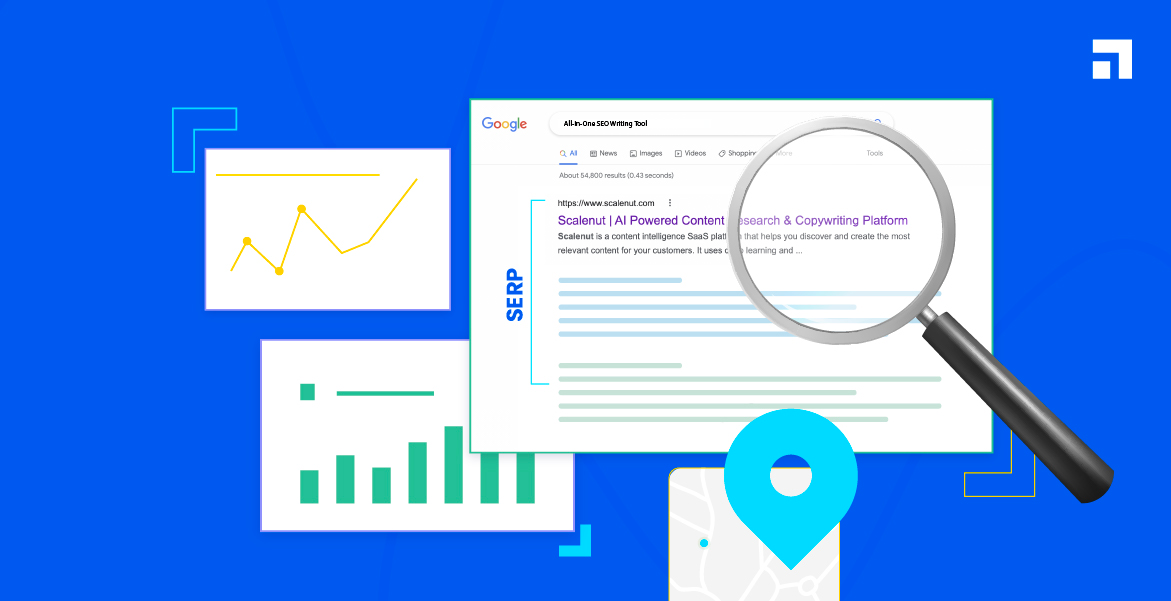Your website plays a crucial role in your digital marketing strategy. It serves as the initial interaction point between your brand and customers, not to mention its pivotal role in boosting SEO rankings. Each search query presents both a marketing opportunity and a challenge; it is your responsibility to identify and capitalize on these moments. But how do you go about it? Enter SERP analysis.
Conducting a SERP analysis is one of the most effective methods for tailoring SEO-focused marketing content on your site. To craft content that serves your customers and secures a high rank in search results, you must grasp the essence of the top-ranking content and discern what it takes to compete at that level.
So, what exactly is a SERP analysis, and how can it fuel your keyword research and content creation efforts? This article delves into these questions, guiding you in uncovering opportunities simply by exploring Google search results.
What Is a SERP Analysis?
A SERP (Search Engine Results Page) analysis explores the search engine results pages for top-ranking websites to evaluate whether or not the keyword you want to rank for is relevant and determine opportunities to outrank your competitors.

The best approach to SERP analysis is to examine the SERP’s display, including top-ranking websites and other SERP features. By studying the top-ranking websites for specific keywords and searches, you can discover how the top-ranking pages reached the highest positions and see how your content displays for searches.
A SERP analysis for content requires that you:
- Search for the desired keyword.
- Evaluate the top-ranking sites.
- Determine the relevance of the keyword to your site.
- Determine how you would rank for this keyword.
With an SEO checker and analysis tool, you can understand the difficulties and opportunities of targeting specific keywords.
How to Use SERP Analysis to Conduct Keyword Research
Many times, beginner SEOs and marketers hop into their keyword research tools, find a keyword they think is relevant, and focus on keyword difficulty scores and search volume. They’ll then start to create content. Even though this isn’t entirely wrong, this approach misses the basic understanding of how Google or any other search engine works.

SERP analysis provides insights into a keyword and its relevance to your products and services, allowing you to rank for the term. Before checking how your content ranks against competitors for a search query, you should first know whether or not that search query is relevant and how your audience uses it.
SERP analysis gives you semantic knowledge, which helps you identify how search engines rank content. For instance, a keyword that seems super-relevant to you can be the wrong option because it is semantically incorrect or the search intent doesn’t match the content you want to provide.
Therefore, using SERP analysis for keyword research allows you to align your content with Google’s goals and give the best results for the searcher’s query. That SERP analysis helps you understand what people want to know when they type queries into Google. This way, searchers find what they are looking for, and you win by improving your organic traffic.
In addition to relevant keywords, SERP analysis, through competitive analysis, shows you how difficult it would be for a keyword to rank at the top of the SERP. It also gives you helpful information such as domain authority, citation flow, and external backlinks that you can use to assess your chances of outranking your competitors.
Using SERP Analysis for Content Creation
Whenever you find a relevant SERP that you’d like to rank for, you should use a reliable SERP analysis tool to evaluate how prominent the competitors are based on several metrics and factors. To obtain this data about the particular SERP, you need to use SEO audit tools such as Ahrefs, which will help you gather various metrics that give you a rough estimate of your competitor’s “strength” and ability to outrank them with your content.

SERP analysis gives insight into the competition level and your competitor’s successful strategies, allowing you to develop creative content that matches or exceeds your competitor’s content. You can also create a USP (unique selling proposition) that makes your content distinct and valuable.
The data from SERP analysis gives you an idea of what people are looking for and why they’re looking for it. Therefore, as a vital step in any SEO strategy, you should find out the kind of content ranking and what that content is focused on to enable you to gear your content creation toward the standards of other top-ranking web pages.
A critical factor in SERP analysis you should consider while you create marketing content is search intent. SERP features are vital in determining searcher intent. By looking at what Google shows in the search results, you can make a pretty good guess as to what content the crawlers have found helpful for that search query and other related searches. Identifying search intent in the SERP can inform your content strategy.
Therefore, you should use SERP analysis to establish the search intent before creating content. The better you know the searcher’s intent behind every keyword, the better you will meet their needs with content strategy. This assists in boosting your search rankings since it’s more customer-centric than traditional keyword research.

Additionally, SERP analysis can help you find hidden opportunities to use in your content to get you up on the SERP and outrank your competitors much faster. This could be the keywords your competitors are missing or the keyword length. For instance, if short-tailed keywords have high difficulties, you can try using long-tailed keywords, which are more specific and less competitive.
Furthermore, in addition to the organic search results, the SERP analysis data may include paid ads and several SERP features, such as People Also Ask, featured snippets, or Related Searches, which can give you various ideas that you can inspect and use to your advantage.
Finally, you can optimize your content with the knowledge and ideas you gain from SERP analysis. Hence, it is complete and relevant, gaining more traffic from the targeted SERP. Also, you can use that data to create content designed to feature on the SERP features. However, research is necessary because Google wants to rank authoritative, trustworthy, and valuable content.
Remember, you should consistently evaluate your content, add new information, and upgrade your existing images and texts with SEO best practices and optimized keywords. Continually improving your content enables the search algorithm to constantly scan your pages, giving you chances to rank higher.
Conclusion on SERP Analysis

SERP analysis is vital for understanding how Google and other search engines read important SEO data and what elements influence how your web page is ranked on the search results page. It lets you see the gaps in your content.
It helps you find opportunities to optimize it and outrank competitors by telling you how to improve your SEO strategy. You can always find a reliable SERP checker tool to help you quickly conduct a SERP analysis.
Connecting your SERP analysis and your website’s content is not a one-time task. The search intent behind a query and the SERP features displayed in search results keep changing. Therefore, keep an eye on your keyword rankings and those of your competitors and evaluate and update your content whenever necessary. Most importantly, write for the user’s benefit because creating content just for the sake of SEO won’t make it as successful as content designed to answer your user’s question.
Featured Image Source: startup.info

